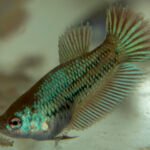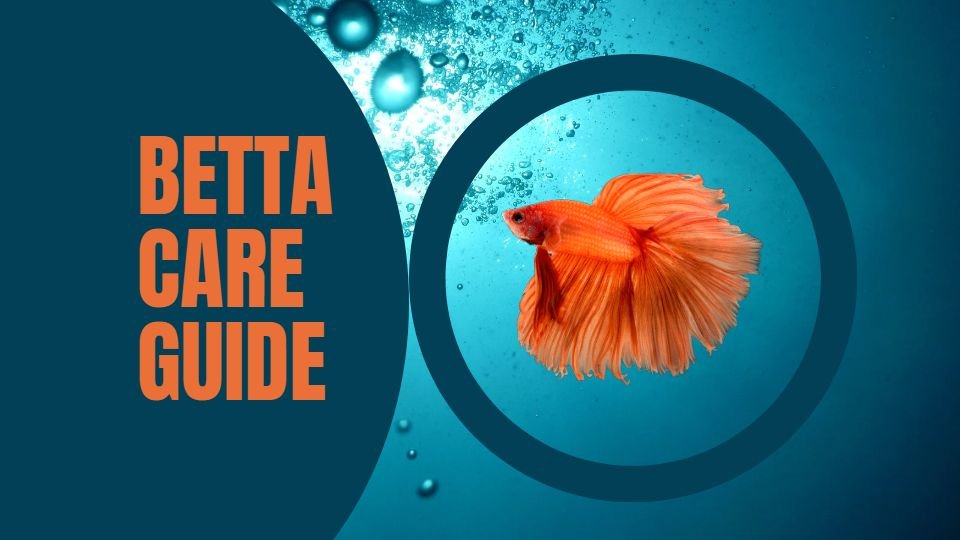Betta Fish Care Guide: Everything You Need for a Tank Setup
Are you a new betta owner wondering, “what do I need for a betta fish?” Well, you have come to the essential guide on setting up a betta fish tank and giving it everything the fish need, from excellent tank water conditions to fish food. These charming fish have captivated people’s hearts for centuries with their colors, fins, and ballsy personalities. But with great beauty comes great responsibility, and it’s up to us betta fanatics to ensure that our best fish friends get everything they need to thrive.
So put on your fishkeeping goggles and learn about the betta care’s ins and outs! We’ll cover everything from setting up the perfect betta tank to providing optimal care to answering all your burning betta questions.
But let’s be honest, the best part about keeping bettas in your tank is showing off their beauty to everyone who visits you. Imagine the looks of admiration you’ll get when you walk into a room with your betta’s tank as the centerpiece display. They might even get green with envy as they gaze upon your betta’s shimmering scales and beautiful flowing fins.
Let’s not hesitate any longer and help you get your betta bliss!
Quick Betta Fish Care Checklist:

- Bettas are generally calm, slow-moving fish with long fins
- Bettas “flare” their fins when threatened, showing aggression
- A male betta should be housed alone, not with similar-looking fish
- Care Difficulty: Good for beginner aquarists
- Average Life Span: 3-5 years with proper care
- Average Adult Size: 2 1/2 inches long
- Diet: Carnivore
- Minimum Aquarium Size: 1 gallon or larger
- Water Temperature: 72-82°F
- Appropriate food: dry and frozen, meat-based
- Recommended Betta fish supplies: aquarium, food, décor, water test strips, filter, heater, substrate, salt
- Habitat size: 1 gallon for single bettas, larger for male bettas, 15 gallons for female bettas
- Feeding: Betta fish need food once a day, but no more than one can eat in 1-2 minutes.
- Care: check filter and temperature daily, test water quality weekly, change the water regularly, change filter media monthly
- Recommended aquarium mates: Keep male bettas separate, but you can keep female bettas in a community aquarium with selected friends.
- Signs of a healthy and happy betta: active, eat regularly, vibrant colors, unfrayed fins, reacts aggressively
- Common betta health issues: fin/tail rot, parasitic infections, bacterial infections, fungal infections, ich, constipation, swim bladder disorder, dropsy (source).
What do I Need for a Betta Fish?

Here are the main supplies you need for a betta fish tank:
- A 2.5- or 5-gallon fish tank
- Clean water, either tap water, bottled water, or betta-specific water
- Water test strips to check the water.
- The correct substrate, which is the ground or flooring of the aquarium
- Decorations
- Betta-specific food
- A water filter to clean the water
- A bubbler or air pump if the oxygen is low or you have many animals living in the community tank
- A fish tank thermometer
- Consider a water heater if the water temperature drops below 70 degrees Fahrenheit or 21 degrees Celsius.
Experts recommend these things for getting started.
Setting Up the Perfect Betta Tank

Ready to transform your empty fish tank into a betta paradise? Follow these tips for setting up the ultimate betta home!
- Choose a tank size that is appropriate for your betta. A 2.5-gallon tank is the minimum recommended size for one betta, but larger tanks are always better.
- Bettas prefer shallow water around 12 inches or 30 centimeters.
- Use a water conditioner to remove chlorine and other chemicals from tap water, which is vital for the health and well-being of your betta.
- Add a filter and an air pump to keep the water clean and oxygenated. Be sure to choose a filter with a flow rate suitable for your tank size.
- Consider using a heater to maintain a consistent water temperature, especially if you live in a cooler climate. Bettas prefer water temperatures between 76-82°F.
- Choose a substrate that is safe for bettas and matches your aesthetic. Options include gravel, sand, and marble, but the best are betta-specific substrates from the pet store.
- Add some decorations to give your betta places to hide and explore. Driftwood, live or plastic plants, and caves are all good choices.
- Avoid overcrowding the tank with too many decorations or other tankmates. Bettas are solitary fish and prefer to have their own space. You can use a tank divider if you wish to keep more than one in a single tank.
Providing Optimal Care for Your Betta
Want to keep your betta happy and healthy? Follow these tips for providing the best care possible!
- Perform regular water changes to keep the tank clean and the water well-oxygenated. A general rule of thumb is to do a 50% water change every week.
- As mentioned previously, use a water conditioner if you use tap water. Other options are bottled water or buying gallons of betta-specific tank water from the aquarium store.
- Feed your betta a varied diet of high-quality pellet or flake food and occasional frozen or live treats. Avoid overfeeding, as bettas are prone to obesity, and it causes more waste in the tank.
- Keep an eye on your betta’s behavior and appearance for any signs of illness. Common symptoms to watch out for include lethargy, loss of appetite, and changes in color or fin appearance.
- Make sure your betta has enough space to swim and explore. A larger tank and plenty of decorations will help prevent boredom.
- Consider adding a mirror or other reflective surface to your betta’s tank, which helps prevent boredom and improve your betta’s overall well-being.
Frequently Asked Questions about Betta Care
Got betta care questions? We’ve got answers!
Do bettas need to be kept alone, or can they be housed with other fish?

It is generally best to keep bettas alone, as they are solitary fish and can be aggressive towards other tank mates. However, keeping a betta with non-aggressive tankmates in a larger tank with plenty of hiding spots and territory for each fish is possible.
Do bettas need a heater or air pump?

A heater is not strictly necessary for bettas, but it can help maintain a consistent water temperature and prevent temperature-related health issues. You are not required to use an air pump for bettas, but it can help improve water circulation and oxygenation. Remember that bettas are tropical fish and prefer temperatures around 75-80 degrees Fahrenheit.
How often do I need to feed my betta?

Experts generally recommended feeding a betta 1-2 times per day, with each feeding consisting of small amounts of food, a total of 2-4 pieces per day, depending on which type of pellets or flakes you use (read the instructions on the label). It is important not to overfeed, as bettas are prone to obesity.
Is tap water safe for bettas, or do I need bottled water?

You can use water for bettas if you treat it with a water conditioner to remove chlorine and other chemicals. It is not necessary to use bottled water. Still, it can give you peace of mind. Test the water quality in your area (better check it) and consider using a water conditioner to ensure the safety and health of your betta.
My betta’s fins are looking ragged and torn. What should I do?

Ragged or torn fins signify fin rot, a common betta health issue that poor water quality or an injury can cause. To treat fin rot, perform regular water changes, use a water conditioner, and consider using an antibiotic treatment. Be sure to isolate your betta during treatment to prevent the spread of infection.
Can bettas live in small bowls, or do they need a larger tank?

While bettas can technically survive in small bowls or gallon tanks, experts can’t recommend smaller tanks due to the lack of space and filtration. The minimum recommended tank size of 2.5 gallons for one betta, with larger sizes being even better.
My betta is showing signs of illness. What should I do?

Suppose your betta shows signs of illness, such as lethargy, loss of appetite, or changes in color or fin appearance. In that case, it is essential to isolate the fish in a quarantine tank and perform regular water changes. Ensure a smooth transition to a new tank by properly acclimating your betta first. Consider consulting a veterinarian if symptoms persist and discuss using an antibiotic treatment.
Conclusion
Thanks for joining us on this journey of betta care! We hope you feel confident and prepared to provide your betta with love and care they deserve. Bettas are more than just pretty faces – they are living, breathing creatures that deserve our respect and attention. So take some time to get to know your betta, understand their needs, and enjoy the beauty and personality they bring to your life. Happy betta-keeping, folks.

